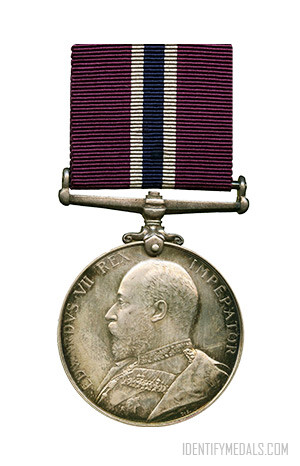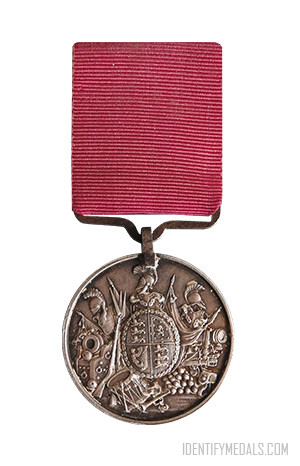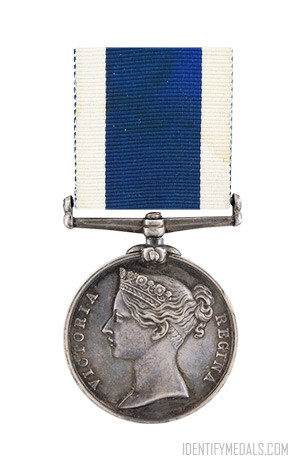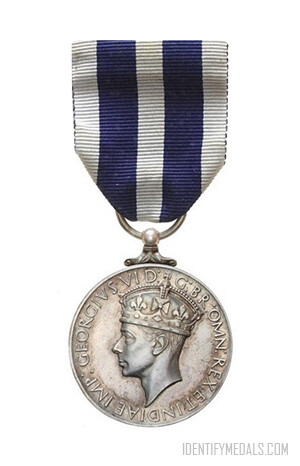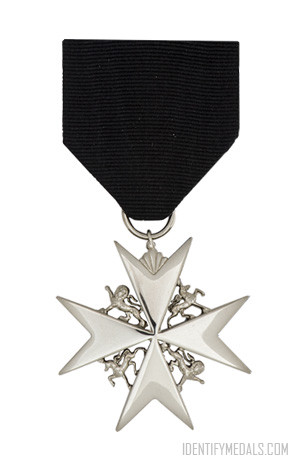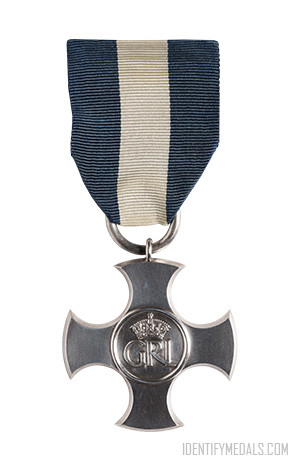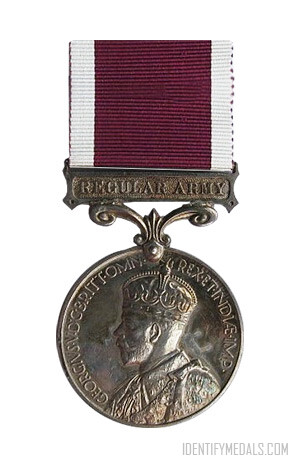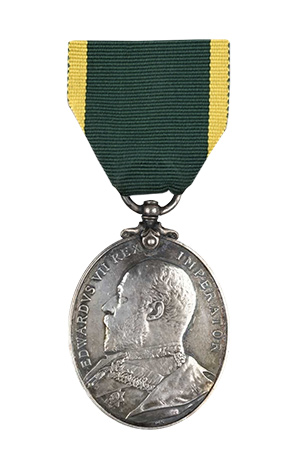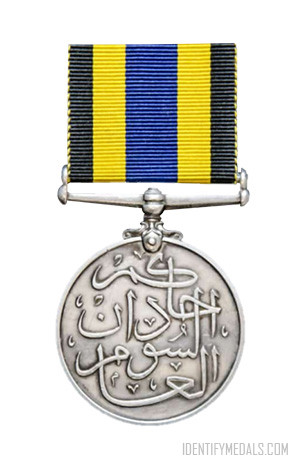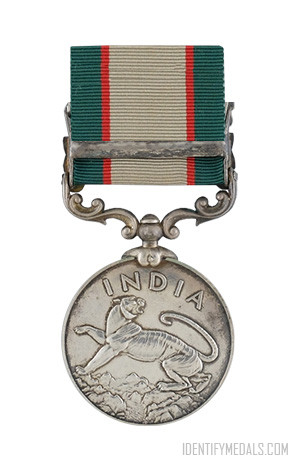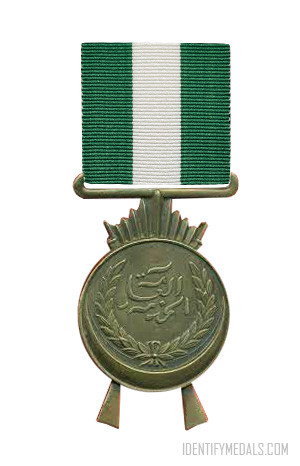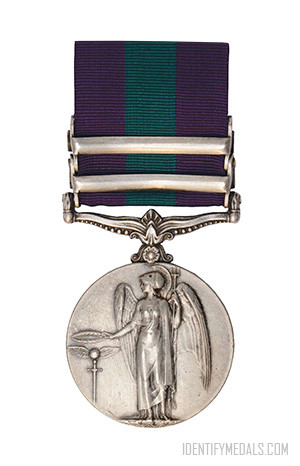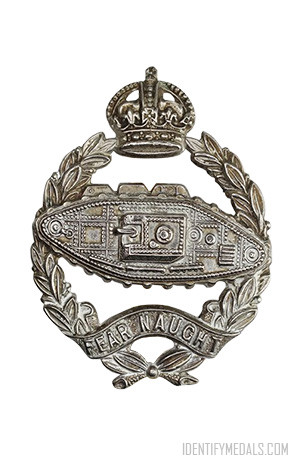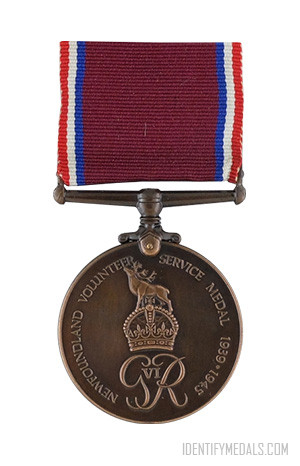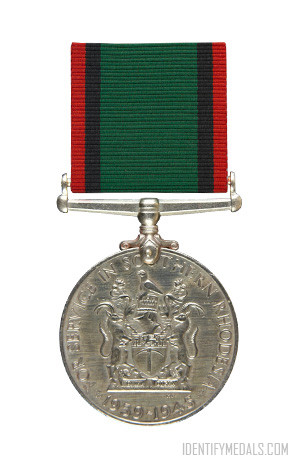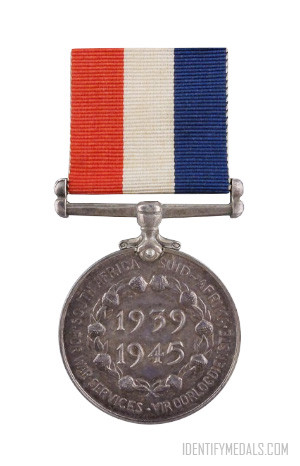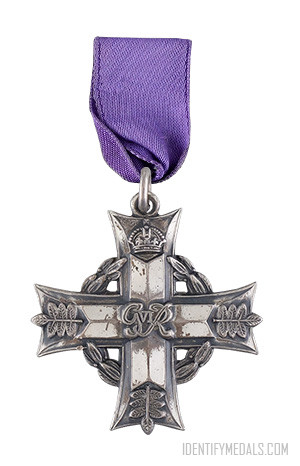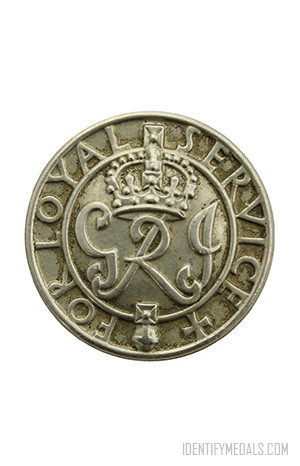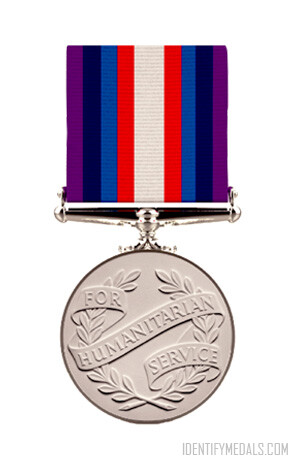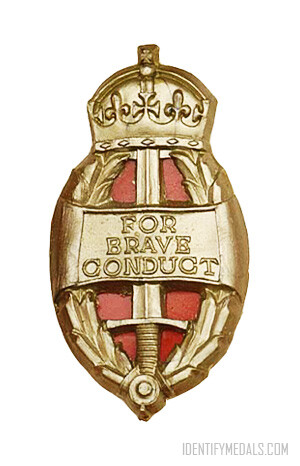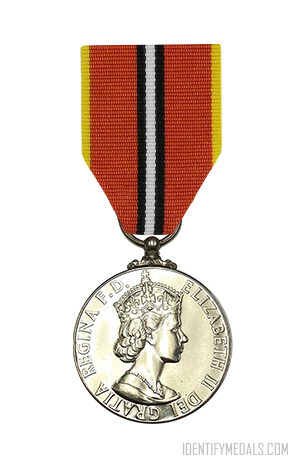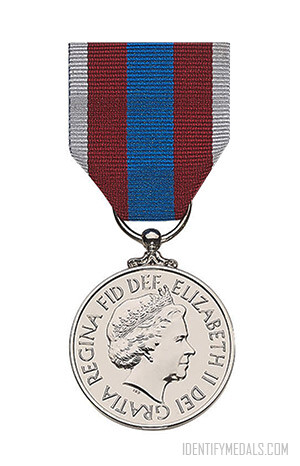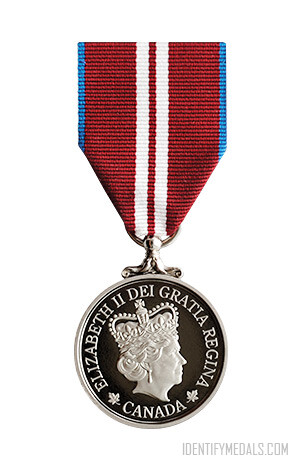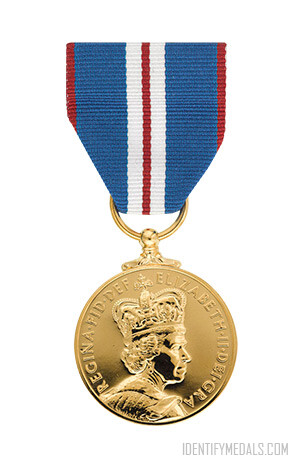Medals from Great Britain from The Great War WW1
British Military Medals & Awards from 1914-1918
The United Kingdom played a significant role in World War I, which lasted from 1914 to 1918. On August 4, 1914, the United Kingdom declared war on Germany after the country violated Belgian neutrality. This declaration marked the official entry of the UK into World War I.
Initially, the UK sent a relatively small but highly trained and professional army, known as the British Expeditionary Force, to the Western Front in Europe. This force played a crucial role in the early battles of the war, including the Battle of Mons and the First Battle of the Marne. As events developed, the United Kingdom’s industrial and economic capabilities became crucial to the Allied war effort. British factories produced weapons, ammunition, and equipment, and the country provided loans and supplies to other Allied nations.
On this page, you will find all military and campaign medals, orders of knighthood, awards, and decorations of the United Kingdom given during (and after) The Great War or World War I. Read more: Great Britain’s Orders of Knighthood – British Medals Order of Wear – How to Apply and Request Records.
Popular WW1 British Medals, Orders & Decorations
These are some of the British medals that are considered the most representative of the WW1 period.
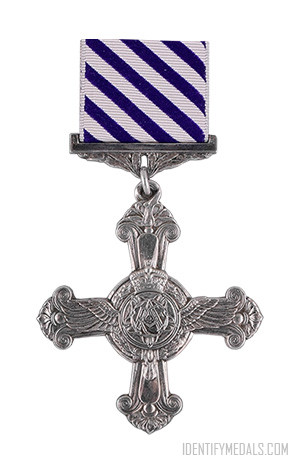
The Distinguished Flying Cross and Medal (UK)
The Distinguished Flying Cross (DFC) was established in June 1918 for officers and warrant officers of the RAF for acts of valor and courage.
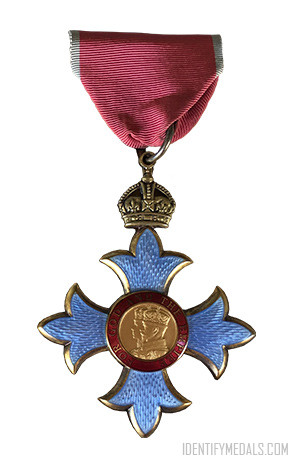
The Order of the British Empire
The Most Excellent Order of the British Empire is a British order of chivalry that rewards charitable works and public service.
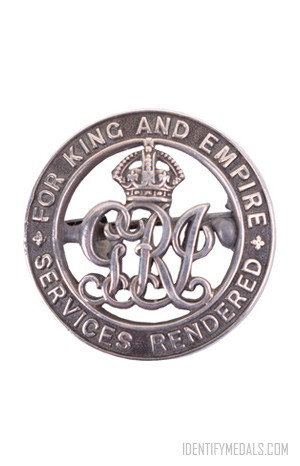
The Silver War Badge
The Silver War Badge was issued to service personnel honorably discharged due to wounds or sickness during World War I.
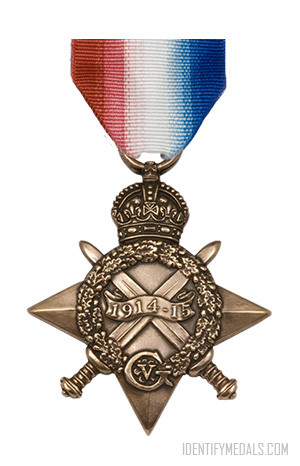
The 1914-15 Star
The 1914–15 Star is a British Empire campaign medal awarded to officers and men of British and Imperial forces during the First World War.
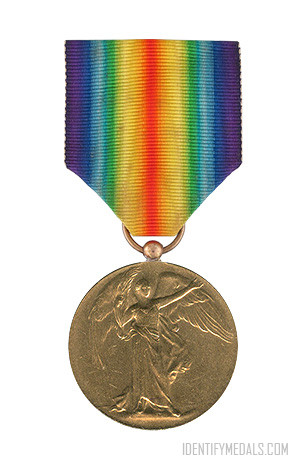
The Inter Allied Victory Medal (Great Britain)
The Victory Medal (also known as Inter-Allied Victory Medal) is a United Kingdom and British Empire First World War campaign medal.
All Great War WW1 British Medals
The British Empire, of which the UK was the heart, contributed troops and resources from across its vast territories. Soldiers from countries such as Canada, Australia, New Zealand, India, and South Africa played a significant role in the conflict, forming the backbone of the British and Imperial forces. British forces were involved in major battles on the Western Front, including the Battle of the Somme (1916) and the Battle of Passchendaele (1917).
World War I had a profound impact on the United Kingdom. The conflict resulted in a high number of casualties, with hundreds of thousands of British soldiers losing their lives and many more being injured. The war also had social and political consequences, contributing to changes in the role of women in society and leading to political developments.
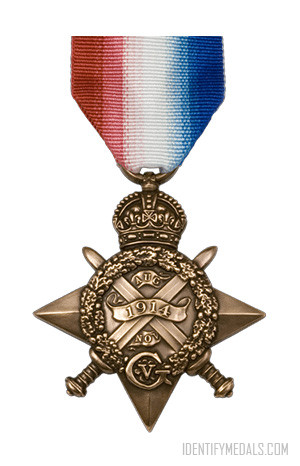
The 1914 Star
The 1914 Star, ‘Mons’ Star or ‘Pip’ is a British Empire campaign medal instituted in 1917 and presented for service during World War I.
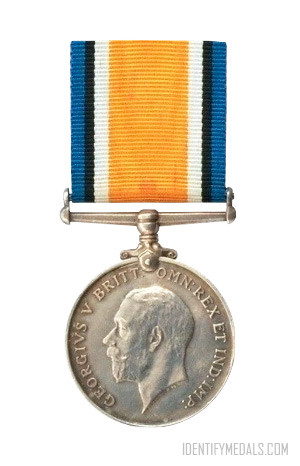
The 1914-1920 British War Medal
The 1914-1920 British War Medal (also known as ‘Squeak’) is a British Empire campaign medal presented for service during World War I.

The Inter Allied Victory Medal (Great Britain)
The Victory Medal (also known as Inter-Allied Victory Medal) is a United Kingdom and British Empire First World War campaign medal.

The 1914-15 Star
The 1914–15 Star is a British Empire campaign medal awarded to officers and men of British and Imperial forces during the First World War.
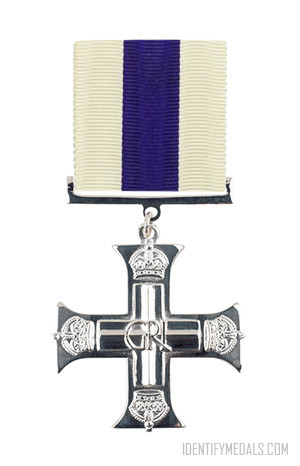
The Military Cross
The Military Cross (MC) is the third-level military decoration awarded for acts of exemplary gallantry during active operations.
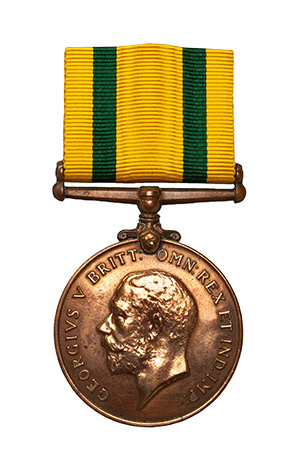
The Territorial Force War Medal
The Territorial Force War Medal is a campaign medal awarded to members of the British Territorial Force and Nursing Service from WW1.
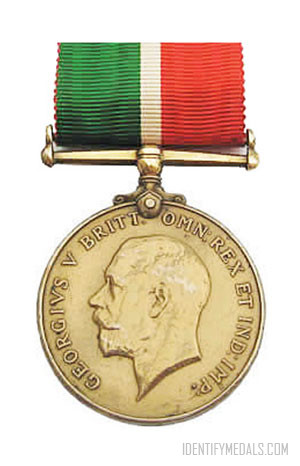
The Mercantile Marine War Medal
The Mercantile Marine War Medal was awarded by the Board of Trade of the United Kingdom to mariners of the Merchant Navy during WW1.
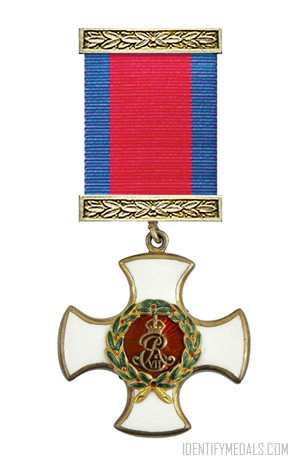
The Distinguished Service Order
The Distinguished Service Order (DSO) is a United Kingdom military decoration awarded for distinguished service during wartime.

The Silver War Badge
The Silver War Badge was issued to service personnel honorably discharged due to wounds or sickness during World War I.

The Order of the British Empire
The Most Excellent Order of the British Empire is a British order of chivalry that rewards charitable works and public service.
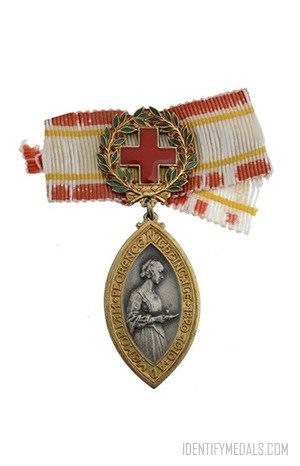
The Florence Nightingale Medal
The Florence Nightingale Medal was instituted in 1912 by the Red Cross as the highest distinction a nurse can achieve.
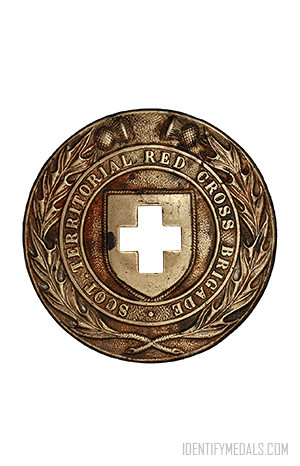
The Scottish Territorial Red Cross Brigade Badge
The Scottish Territorial Red Cross Brigade Badge is a WW1 cap badge made in brass-metal with a red felt backing to the central Geneva Cross.
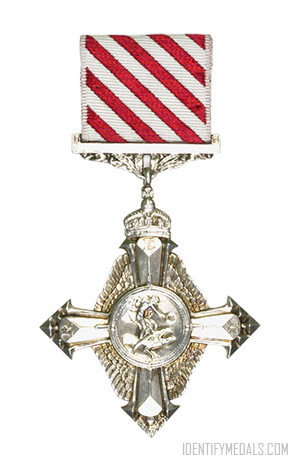
The Air Force Cross and Medal (United Kingdom)
The Air Force Cross is a British military decoration awarded to officers for “acts of exemplary gallantry while flying against the enemy”

The Distinguished Flying Cross and Medal (UK)
The Distinguished Flying Cross (DFC) was established in June 1918 for officers and warrant officers of the RAF for acts of valor and courage.
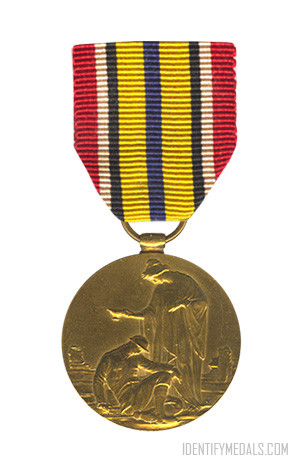
The Allied Subjects’ Medal
The Allied Subjects’ Medal is a decoration awarded to citizens of allied countries who gave assistance to British and Commonwealth soldiers.
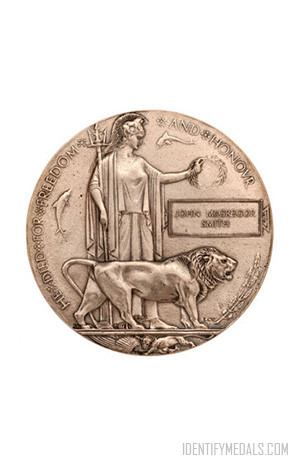
The Memorial Plaque Medallion
The Memorial Plaque was issued after WW1 to the next-of-kin of all British and Empire service personnel who were killed during the war.
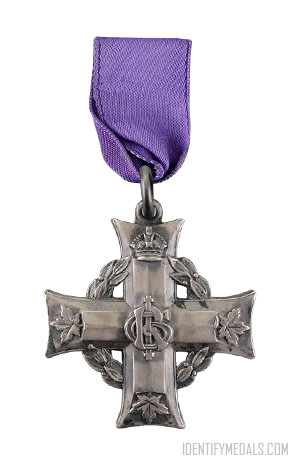
The Canadian Memorial Cross
The Canadian Memorial Cross was first instituted in 1919 and awarded to mothers and widows of Canadian soldiers who died on active duty.
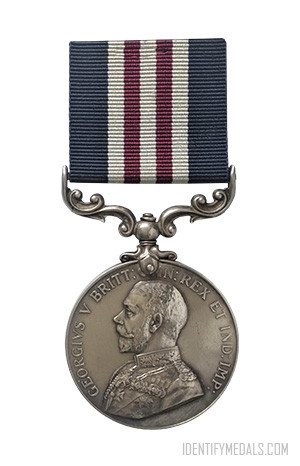
The Military Medal (MM)
The Military Medal (or MM) was a military decoration established in 1916 and awarded for bravery in battle to personnel of the British Army.
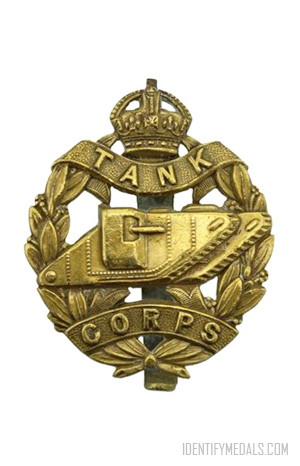
The WW1 Royal Tank Corps Cap Badge
The Royal Tank Corps Cap Badge is a First World War brass King’s crown cap badge for members of the Tank Corps.
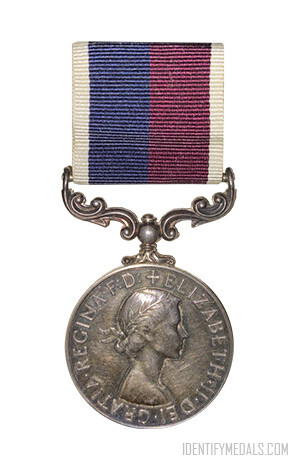
The Royal Air Force Long Service and Good Conduct Medal
The Royal Air Force Long Service and Good Conduct Medal was instituted by King George V in 1919 and awarded to officers and airmen.
More British Medals
Explore British medals from different periods of time, including before World War I, the interwar period, World War II, and afterwards.

